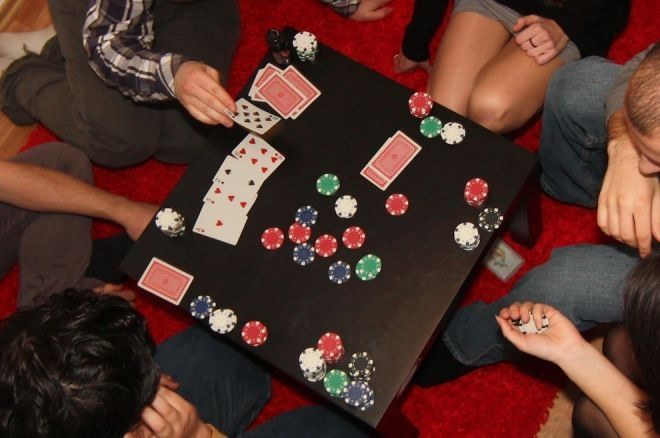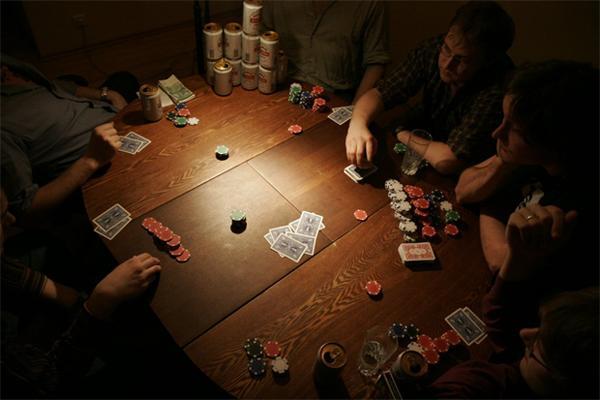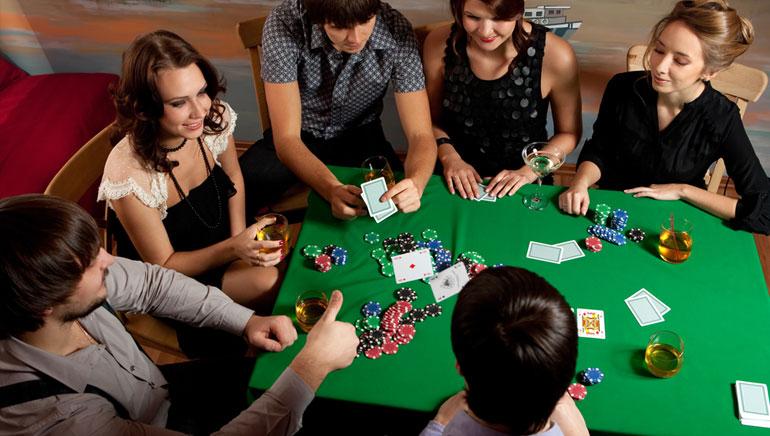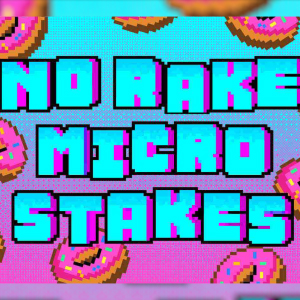Don't be an Arse When You Teach Your Friend Poker
9 years ago

14 Sep
Each time I learn something new about poker I realize there is much more left to learn. This is mildly frustrating, but at the same time it’s fun to see the progress I’m making. We need new players coming into the game and forgetting about bankroll building, financial gain, fish and sharks for a moment, poker is a really fun and social way to spend an evening. Quite often you will be asked by a friend to help them learn the game, because everyone likes poker right?
If you take a friend to play poker and they are just a beginner, you may feel a sense of responsibility to help them out if they are unsure. They will otherwise be easy money in the game and you want them to get as much play as they can and not to bust too early. In this article we will look at the best ways to do this without upsetting everyone else, as this is easily done as you focus on helping your mate learn. A noble cause, but others might not see it this way.

Don’t Coach During Play
Coaching during a hand is a big no-no. It’s against the rules to, for example, say during a hand as play goes on with other players that:
"They called the bet but they should have raised.”
This behavior will see you immediately reprimanded by the dealer and possibly penalized. Other players will be upset to and whilst usually new players are given the benefit of the doubt and receive only a mild verbal warning to begin with, the dealer, the floor and other players will react really badly if you continually flout the rules.
Are you good enough to coach?
Firstly consider how suitable you are to be a coach. I know the rules, I understand a bit of strategy but even if I attempted to explain detailed strategy I would be shining a light on my own poor play rather than actually helping my friend. Talking aloud shines a light on them too. It’s like shouting out:
"Hey everyone, here is the fish right here next to me!”
Your friend might not realize how much of a problem you have just caused them.
I played in a poker tournament at a club recently that I had not played in before. Before play began I asked if there was any rules I needed to know about and was informed the only thing the club liked was players to put their drinks on the tables behind the poker tables rather than in the drinks holders on the tables, to prevent spillages. It was a little thing, but it got me off to a good start with everyone.
You will make the dealer's life difficult
A good poker dealer will manage the table talk to ensure it does not get out of hand, if things do escalate the floor manager or tournament director will be called to rule in any alleged rule infringements. Unfortunately whilst the dealers are doing their job, they do not want to intervene too much and prefer not want to rock the apple cart too much. Like poker players, dealers vary in confidence and ability.
Other players may notice your behavior and get frustrated at the dealer for not sorting it out. It’s also not the best idea to get the floor too familiar with who you are. No-one likes a smartass and the whole table will enjoy seeing you brought down a peg or two.

You hurt the game
Hopefully you are not sitting in the game because you know you are the fish and you are generous with your money. Talking throughout a hand and breaking poker etiquette will be noticed. Every time you do this there will not necessarily be a stand up row as many players will remain focused on their game determined not to get distracted, but they might decide the game sucks and resolve not to return in the future. That player could be the fish at the table and your potential future earnings are damaged and this could cost you money.
A poster on reddit called “patiofurnature” posted how they feel when someone acts like an arse at the poker table, either by helping a friend or just being generally silly;
"Every once in awhile I'll be playing live and run into someone like you at my table. It's so ungodly miserable that it usually ruins the entire idea of playing poker for me and I won't go back for 2 or 3 weeks. Please just stick to online poker. Live isn't for you.”
Let Mistakes Happen
Everyone makes mistakes and the best way to help your friend learn is to remember situations to discuss later on or make a little note to remind you what happened so you can plug the leak. You might even learn something yourself. In every tournament I play in someone acts out of turn or makes an incorrect bet, these things happen so don’t get too hung up on mistakes. The dealers are there to monitor the game but opponents also want a smooth game so will help you learn to keep things moving along, even if this is largely for their own benefit.
I remember being terrified about having to deal the cards when I had the button which is common at low stakes games where there is no dealer and I simply said to the table:
"Keep me right please, I’m new here.”
I did not mind if they saw me being new as being a fish as I knew how to play, I was just spoilt by the online poker rooms doing all the calculations for me in terms of my stack and dealing the cards for the table!
You can use the breaks to give your friend any tips they need to know. The most important thing is to enjoy the game and not tilt everyone by acting outside of the acceptable table etiquette and show yourself up.

The Correct Way to Teach
The highest stakes games are not the place to learn poker. There are enough opportunities outside of the live arena, such as poker training websites, articles, videos like the tutorials here on PokerTube, or just your living room where a player can grasp the basics of poker and go from there. Take the time to play heads up with your friend and practice shuffling the cards, handling the chips, understanding how to deal with counting split pots and so on. Also discuss general poker etiquette and some of the key do’s and don’ts to remember when they play. This will give them a good base to go into a game not feeling overwhelmed and as their skills improve, they will build on this knowledge.
It’s easy to get carried away and forget others are risking their money and as such they will be taking the game seriously. You need to respect the game and your opponents, even when you are helping others.
I hope this advice helps you avoid being a distraction at the table and getting yourself into trouble. Remember to also focus on your own play. Being a coach is a good thing, but you don’t want to miss opportunities that could help you make strides towards winning the tournament!







Comments
You need to be logged in to post a new comment